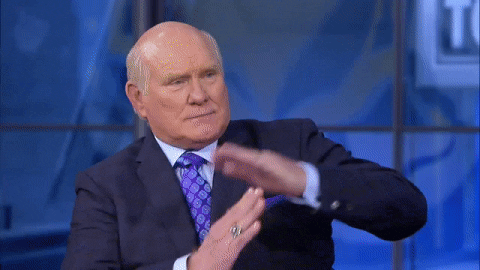March 7
This week in MORE POWER:
Making a Statement
Remembering Sylvester Turner
Stop the Clock: Sports Bill Blocked
Wrestling with Education
Tariffs: Back in Action
Making a Statement
President Donald Trump gave Congress the first speech of his second presidential term this week. The tradition of presidents addressing Congress shortly after inauguration began after former President Ronald Reagan’s address in 1981; however, these initial speeches are not considered State of the Union addresses, which are given once a president has been in office for a year. Trump immediately called former President Joe Biden the worst president in U.S. history and blamed him for the increasing price of eggs. Over the course of the hour and 39 minutes long speech, which is the longest congressional address in history, Trump spoke on a variety of topics, such as several recent executive actions; celebrated the passage of the Laken Riley Act, which requires the government to detain immigrants who are charged with theft-related crimes until their immigration cases are resolved; promised more tariffs; reiterated his desire to acquire Greenland; and emphasized the money the Department of Government Efficiency (DOGE) has allegedly saved so far, though fact-checkers and journalists continue to push back on these claims.
Congressional Democrats protested during the speech by holding various signs and withholding applause until Trump mentioned restarting peace negotiations with Ukraine. Rep. Al Green (D-Texas) stood up from his seat, shook his cane, and yelled at Trump, which caused other members to either cheer or boo; then, Speaker Mike Johnson (R-La.) ordered Green to be removed. House Republicans, along with 10 House Democrats, censured him later in the week.
Remembering Sylvester Turner
The late Rep. Sylvester Turner (D-Texas) passed away shortly after the president’s congressional address. Though he was sworn into Congress for the first time in January, Turner had a long history of public service; he had been a member of the Texas House of Representatives for 27 years, as well as the mayor of Houston for eight years.
This means the House's composition has changed again. The House first began the term with 219 Republicans and 215 Democrats, as former Rep. Matt Gaetz (R-Fla.) had already resigned. Following the resignation of Rep. Mike Waltz (R-Fla.), Republicans have 218 seats. Now, with Turner's passing, Democrats control 214 seats. Turner’s seat will remain vacant until Texas Gov. Greg Abbott calls for a special election; the winner will then fill the seat for the rest of Turner’s term.
Stop the Clock: Sports Bill Blocked
Senate Democrats blocked the Protection of Women and Girls in Sports Act this week, as the bill fell short of the 60 votes needed to advance. Only 51 senators voted in the bill’s favor while 45 opposed. If made law, this bill would prohibit schools receiving federal funding from allowing transgender girls and women to compete in sports designated for women or girls. It would do so by classifying the participation of trans women as a violation of Title IX, which is federal law that prohibits sex-based discrimination in federally funded education programs. If made law, this bill would impact athletes at all federally funded schools, including collegiate athletes.
Wrestling with Education
The Senate voted to confirm Linda McMahon to be the secretary of education by a margin of 51 to 45. McMahon, who studied to become a French teacher in college but never taught, opting to become a co-founder of the World Wrestling Entertainment (WWE) instead, was an exceptionally contentious nominee due to her and President Trump’s shared goal of eliminating the Department of Education (ED). Following her confirmation, McMahon published a speech on the ED website, wherein she called upon ED employees to work with her to eliminate "bureaucratic bloat” from the ED as part of the department’s “final mission.” Trump reportedly has already drafted an executive order that would direct McMahon to dismantle the ED as much as legally possible, which some anticipate he will soon sign.
Tariffs: Back in Action
The tariffs we reported on last month were partially implemented this week. Last month, these tariffs almost went into effect, but Mexican President Claudia Sheinbaum and Canadian Prime Minister Justin Trudeau were able to work with President Trump to temporarily avert them. This week, the 25% tariffs on goods coming from China and Mexico mostly went into effect with a notable exception: Trump exempted goods covered by the North American trade agreement known as USMCA, which accounts for around 50% of goods coming from Mexico and 38% of goods coming from Canada. These exemptions are set to expire on April 2. Additionally, the tariffs on goods coming from China have increased to 20%. Trump has also indicated that additional tariffs may be placed on any country that has a tariff on U.S. imports on April 2.
So far, China and Canada have both announced retaliatory tariffs. Sheinbaum, on the other hand, has said that Mexico will impose retaliatory tariffs, but she has not revealed the details yet. This trade drama has caused the stock market to drop.











